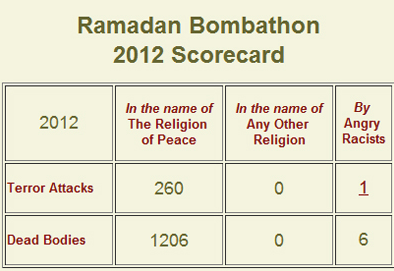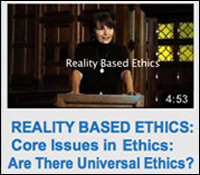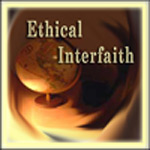
What Is This All About?
This interfaith group is
for people of all faiths who are for human rights, who have a generally shared ethics, and who openly renounce any parts of their religions that are not for these rights. This is something relatively new for the world.
The starting point is not that all ethical standards are equal, or that all faiths have very similar values, but that:
- we - all people - have the right to flourish,
- we have the right to safety, peace, and the freedom to think and also live as we choose, including in our faith practices, as long as we are not harming others,
- we have the right to protection from coercion, terror and enforced silence,
- we have the right to the safe exploration of our spiritualities, in other words our beliefs about and experiences of (or lack of experiences of) the non-5-sense universe,
- and also, that we have the responsibility, within our individual limitations, to try to help establish, strengthen and maintain these rights,
- and that we have the responsibility, again within our limitations, to stop persecution and protect the persecuted.
**
A more common way of talking about human rights is in terms of equality and equal rights. So here are some equalities that are upheld. The equality of:
-
men and women;
-
people of all races;
- people of all sexual orientations;
-
people of all castes and classes;
-
people from all faiths.
Note that people are seen as equal - not that all faiths, beliefs and ideologies are seen as equal.
**
Who is included in all "people from all faiths"? Basically everyone. For instance, atheists BELIEVE there is no god, and have just as little evidence as Christians, for example, have for the BELIEF that there is one. Some Christians BELIEVE there is a trinity (though there is no mention of one in their central religious text, the Bible), and others are adamant in their BELIEF that there is no such thing.
**
How does this group differ from many other interfaith groups? Many such groups hold that all religions are basically the same, rather than looking at and seeing what the various faiths are actually about, both in terms of spiritual beliefs, and in terms of ethics.
This is akin to starting by claiming that all food has basically the same nutrient content.
First, such a stance is dishonest. It isn't in line with reality.
Then, even more important, to claim that all religions are basically the same is dangerous for anyone who is for human rights - because it blocks recognizing which faiths do not uphold such rights, and even are vehemently against them. It starts with an assumption, rather than with exploring.
People can't deal with what they don't see, what they may even refuse to recognize and/or may be criticized for daring to want to explore.
Such non-perception is handy for any religion (or that portion of any religion) which would rather not have its ethics explored.
**
Islam is currently the prime example. It claims, when not in a dominant position in a society, to be for tolerance. But Islamic religious texts include passages calling for the death of those it terms infidels (non-Muslims) and those who leave Islam, whom it terms apostates.
Am I picking unfairly on Islam?
Quite the contrary. It's taken me years to recognize how greatly Islam differs from the other major world religions. Like many people in the West, I long held the unfounded assumption that Islam and, for instance, Christianity have quite similar ethical stances.
Yet at the same time I knew that the ethics of different branches of Christianity differed enormously. On one extreme are the Unitarians with their strong and long-standing human rights stance on everything. On the other are many traditional forms of Christianity which still don't recognize, for instance, the right of women to equal positions within their faiths. Gay rights - still an ongoing issue within many branches of Christianity, perhaps most of all those in Africa.
In a way, Islam is irrelevant to me - except that traditional Islam (upheld by perhaps 60% of the 1.2 billion Muslims worldwide) is against many of the human rights this group is for - like religious freedom, including the freedom to change religions or to have no religion.
In childhood, I was equally against many branches of Christianity - as they were against many things I already believed in. Male female equality, for one thing.
**
Do I hold, by the way, that all Muslims believe in "death to apostates"? Of course not.
But I do hold that it is essential that Muslims acknowledge the existence of the passages calling for this in their religious texts, and not pass these off as misunderstandings.
The same goes for passages in other religious texts which go against the core ethics of this ethical interfaith group.
Actually what is core within the group is not any religious texts, but that people start from a human rights position, and if any passage from a religious text goes against human rights, that passage is not accepted - in fact, is (in formal terms) openly renounced.
**
There's another reason for this group at this time. Something alarming has been becoming clearer and clearer to me: Christians are being murdered for being Christian in numbers that sound incredible to me. Over 100,000 people per year. About one person every five minutes.
That brings me to another core aspect of this group: ethical interfaith activism:
-
to stop persecution, especially religious persecution,
-
to protect the persecuted,
- and to help survivors of persecution.
A primary concern will be with severe persecution, especially violent persecution, like the murder of Christians, the burning of Christian churches, violence for so-called blasphemy, etc. The perpetrators are overwhelmingly Muslim.
In China there is the imprisonment, torture and execution of the Falun Gong, just for being members of this spiritual community, and their use for organ "harvesting" - meaning the murder of Falun Gong prisoners for their organs. In this case the perpetrators are the Chinese government.
In addition to concern for the most severe persecution, there is concern for escalating religious intolerance, notably anti-Semitism throughout many European countries, most strongly by Muslims.
Muslim against Muslim violence is another concern, especially against Muslims adhering to minority sects, like the Ahmadis and the Ismaelis, but also by Sunnis against Shias and vice versa, etc.
**
Where are most interfaith groups while such persecution is happening? They're overwhelmingly silent.
So are most Christians themselves. Most ministers, priests, nuns, pastors and ordinary run-of-the-mill Christians are either unaware or silent.
It makes no sense, if one thinks of taking care of victims of persecution - or for Christians, if one thinks of caring for the most at-risk of one's own group.
I would think that interfaith groups, above all others, should be addressing several things.
One. Why are Christians the major targets of religion-motivated killings at present? Slightly fewer than 30%
of the people in the world consider themselves Christians (2.1 billion). 75% of those being killed for their religious beliefs are Christian. (Click here for some sources.)
Two. Muslims are the next most targeted group.
Three. Re both Christians and Muslims, the killers are overwhelmingly Muslim. Why is that?
I won't give years of statistics. But here is one small telling scoreboard:

Four - a vital question to be addressed. Why is this not a focus of interfaith groups? If "all religions are basically the same," this would not be happening.
Surely this is something worth addressing by any group that cares about human well-being and truth, as well as spirituality.
If it's not being addressed, why not? Fear of seeming un-nice, on the part of Christians? Fear of Muslim rage, on the part of Christians? Fear of hurting the feelings of Muslims, on the part of Christians? Lack of capability to see, on the part of Christians, when Christians are the victims rather than the victimizers (because, this past half-century, a major percentage of Christians have been admirable in openly acknowledging how they have victimized others.)
I can see that Muslims could be uncomfortable with the information. There could also be some pleased with it, or at least sympathizing with those Muslims committing the killings, in which case they would definitely not want to talk about it.
Whatever the reason, this does not improve the situation.
The question: how do people work together, with each other, to stop persecution by a religious group, currently primarily by Muslims?
If one is dealing with an illness, silence is not helpful.
Nor is it when one is faced with religious persecution.
Perhaps it might be helpful to see how the persecution by Christians was stopped, to see if anything might apply to what is happening now with Muslims. Or one might find that this situation is different, calling for different interventions.
But back to ... silence is not helpful.
**
That includes, by the way, lifting silence about violence done by Buddhists as Buddhists. Many in the West see Buddhism as all about sitting under trees and meditating peacefully until enlightenment is attained. It can come as a shock to read about Buddhist monks telling a Christian pastor that he can't conduct any services without their permission, organizing a demonstration against the Christian place of worship, and finally playing a central role in the attack on it. The time: December 2012. The place: Sri Lanka
I know I found it hard to believe, the first time I read of the many social injustices in the Dalai Lama's Tibet - injustices not caused by the Chinese (of course I knew about those), but a longstanding part of the society (a strong class system, for instance).
And then there's the still strong caste system within Hinduism.
And we can get back to, say, the still common homophobia within many branches of Christianity.
And the denial of the equality of women and men in Islamic religious texts.
All this - and much more - needs to be part of an open and candid discussion of the ethics of the many different faiths.
One needs to look, too, at what ethics are validated in the central religious texts, and which are not.
**
That brings me back to this group, Ethical Interfaith.
**
A little more on the ethical aspect of the group.
In my case, like that of millions in the West, my ethical positions do not come from religious texts, but from belief in human rights.
Many people from traditional faiths may then ask: how can you possibly have any ethics at all that you are sure of?
This is, in fact, a reason why I find it vital to show how this stance and a religious stance fit together.
The answer: the foundation of a faith-based and a non-faith-based ethics are the same: reality. (All explained in this 5 minute video.)
**
By the way, I don't expect every ethical value to be accepted by all.
For example, I was horrified as a child at a passage in a children's version of the Bible (given to me by Jewish friends of my so-called Christian parents). In the passage, one brother sacrifices animals to his god. The other burns grains. I was sure the god would be against the brother who sacrificed animals. But he was for that brother. It made no sense to me then - and still doesn't. Something in me is utterly against animal sacrifice.
So as I was saying, I don't expect every ethical value to be accepted by all.
But in this group, it is accepted that we have the right to flourish and to live as is right for us unless this means harming others.
**
Another point. There is a positive reason why so many people hold that all religions have the same foundation. Clearly there is only one non-5-sense reality (or no non-5-sense reality).
But there is a huge logical gap if one leaps from that position to claiming all religions are equally close to it. Some are harsh and punitive. Others loving. Some claim there is heaven and hell. Others claim there is reincarnation.
The gap - a massive logical fallacy - is likely in part caused by a desire to avoid conflict. Let's just say everything is the same.
Another reason may well be that some people have a vested interest in other people's not seeing.
The core problem with holding that all religions are basically that same is that clearly they are not.
All parents are not the same. All climates are not the same. All foods are not the same. The same goes for all faiths.
Welcome to Ethical Interfaith.
Elsa
To go to how this group differs
from many interfaith dialogue groups,
click here.
To go to a video on
core issues in ethics, like,
can we establish universal ethics,
click here.
Ethical Interfaith
dares to tackle
core issues in ethics and
interfaith dialogue.
Are there universal ethics?
How to compare religions.
Religious persecution.
ABOUT:
ethical interfaith, interfaith dialogue,
compare religions, religious tolerance,
core issues in ethics, emotionally healthy spirituality



Ethical Interfaith
Ethical Interfaith
Is Not ...
Reality-Based Ethics:
Universal Ethics,
Universal Human Rights
Questions
for interviewees
Elsa

contact
My Personal
Spirituality

dedicated to the
open, candid, truthful
and respectful
exploration of:
- the ethics of
different faiths,
both from religious texts
and as these are lived,
- our personal ethics
and how these relate
(or not) to our faith,
- what is at the core
of ethics,
the things we need
to flourish.
David Kilgour - On the Persecution of Christians:
A 2011 Pew Forum (on Religion and Public Life) (http://www.pewforum.org/) study estimated that Christians today constitute about 2.1 billion followers. Approximately one-tenth of them are being persecuted in varying degrees by governments or fellow citizens in 131 of the world’s independent countries. Another source estimates that approximately 105,000 Christians are murdered annually because of their faith. In other words, about one Christian is killed every five minutes somewhere on earth.
**
According to both the Catholic relief agency Aid to the Church in Need and the evangelical group Open Doors:
Some 150,000 Christians are killed for their faith each year.
**
Another source - 2010:
According to the World Evangelical Alliance, over 200 million Christians in at least 60 countries are denied fundamental human rights solely because of their faith. David B. Barrett, Todd M. Johnson, and Peter F. Crossing in their 2009 report in the International Bulletin of Missionary Research (Vol. 33, No. 1: 32) estimate that approximately 176,000 Christians will have been martyred from mid-2008 to mid-2009. This, according to the authors, compares to 160,000 martyrs in mid-2000 and 34,400 at the beginning of the 20th century. If current trends continue, Barrett, Johnson and Crossing estimate that by 2025, an average of 210,000 Christians will be martyred annually.
**
Still another source - 2012:
150,000 Christians killed for their faith each year: Cardinal Dolan
**
And then, in CatholicCulture.org:
Every year 105,000 Christians are killed because of their faith.
This shocking figure was disclosed by Italian sociologist Massimo Introvigne, representative of the OSCE (Organization for Security and Cooperation in Europe) on Combating Intolerance and Discrimination against Christians, at the “International Conference on Inter-religious dialogue between Christians, Jews and Muslims,” sponsored the Hungarian presidency of the European Union (EU) in Gödöllo, near Budapest.
“Every five minutes”, Introvigne said in his speech, “a Christian is killed for his faith." The figure does not include the victims of civil wars, or wars between nations, but only the people put to death because they are Christians.
**
Wikipedia:
A recent study, cited by the Vatican, reported that 75 out of every 100 people killed due to religious hatred were Christian
****
David Kilgour - On the Persecution of Christians:
The West should use the billions of dollars in aid it gives to offending governments as leverage to stop the persecution of minorities, including faith ones. (The U.K. Prime Minister David Cameron has recently indicated that there will be no British aid to countries mistreating religious minorities.)
Ethical Interfaith dares to tackle
core issues in ethics and interfaith dialogue.
Are there universal ethics?
How to compare religions.
Religious persecution.
To go from this introduction to more on
interfaith dialogue and
comparing religions,
click here.
.
top of page
Terms of Service Privacy Policy
concept and design
Elsa Schieder
copyright © Elsa Schieder, 2012-2019, all rights reserved
All content of this website is copyrighted.
Permission required to republish.
For any further information, please contact:
elsa [at] elsasblog [dot] com